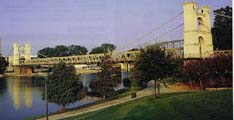
|

|
Fighting for single-member districtsJane Derrick |
|
In 1970 all of the Waco, Texas city council positions were elected at large and the candidates preferred by the East and South wards (predominately black and Hispanic) lost in the citywide election. The NAACP publicly took a stand against at-large elections. The League of Women Voters began to study the issue in 1971 and came to consensus in1972 in favor of single member districts. The study included historical research and interviews with community leaders. During the historical research it was discovered that in 1950, soon after the first black person ran for city council, the method of electing the city council was changed from the ward (single member district) system to a system in which the council member from each district was voted on by the entire city. The executive board of the NAACP, East Waco Branch, was interviewed regarding the political situation. They said, “We feel helpless and desperate. We are almost to the point of calling in outside help to organize us so we can be more effective politically—not violently. Every time we put up a candidate, the whites put up an opposing candidate that does not represent us and elect him.” |
Representatives from community groups in favor of single member districts were called to work together by the League of women Voters in 1972. The group named itself the Committee for Responsive Government. After exploring various action options, it decided to bring suit against the City of Waco to change the system. On January 16, 1974, with the help of ACLU lawyer, David Richards, of Austin, Texas, nine members of the group, including African Americans--William Halliburton, Wilbert Austin, and Lela Briscoe; Hispanics—Roland Arriola, Pete Arvizu, and Frances Ortega; and Whites—Jane Derrick, Kathy Patteson, and Myrtle McKinney filed suit. On April 19, 1976, a judgment was made in the case of Jane Derrick, et al vs. Harold Mathias, et al in favor of the plaintiffs and the City of Waco was ordered to change to the single member district method of electing the city council. |
|
Return to First Person home page |
|